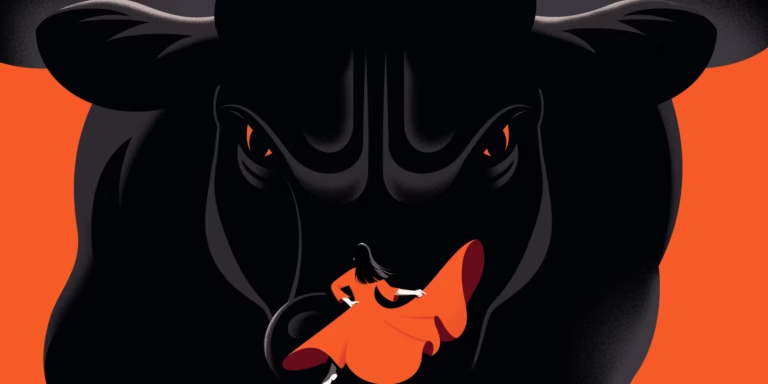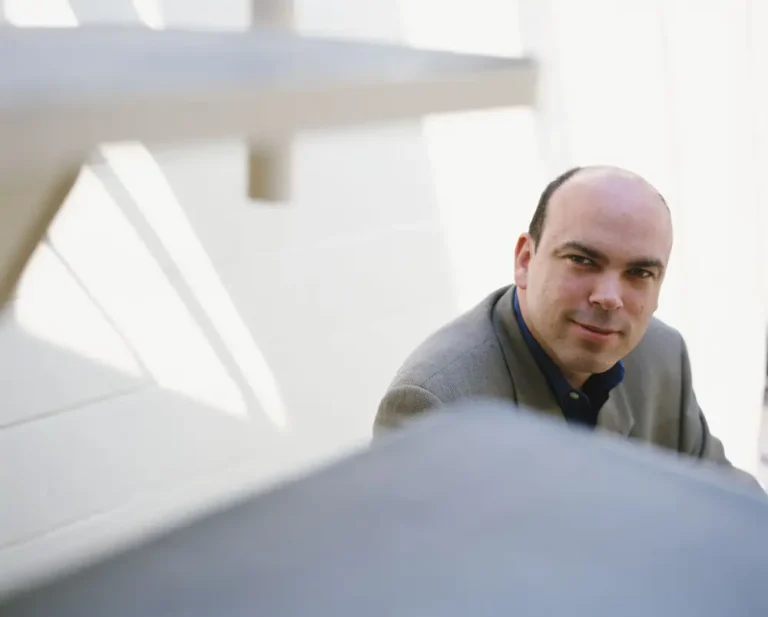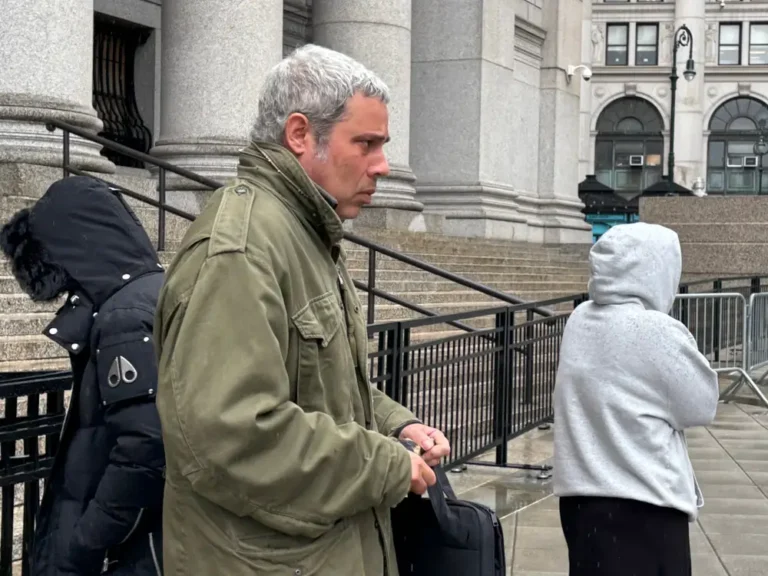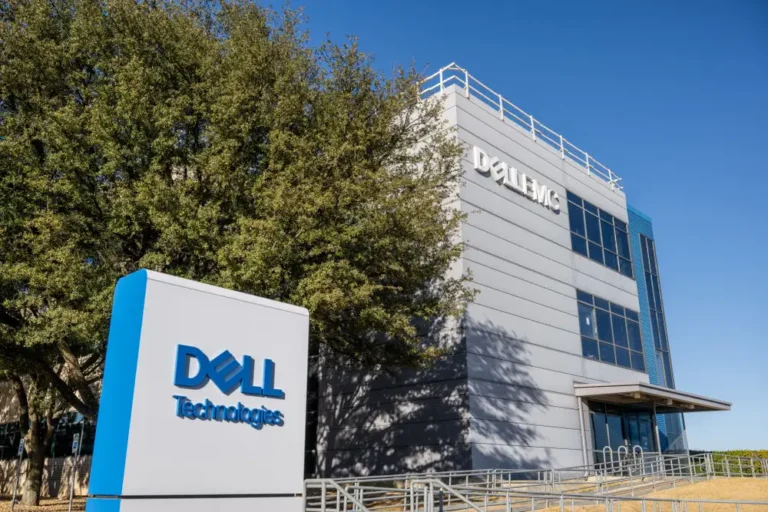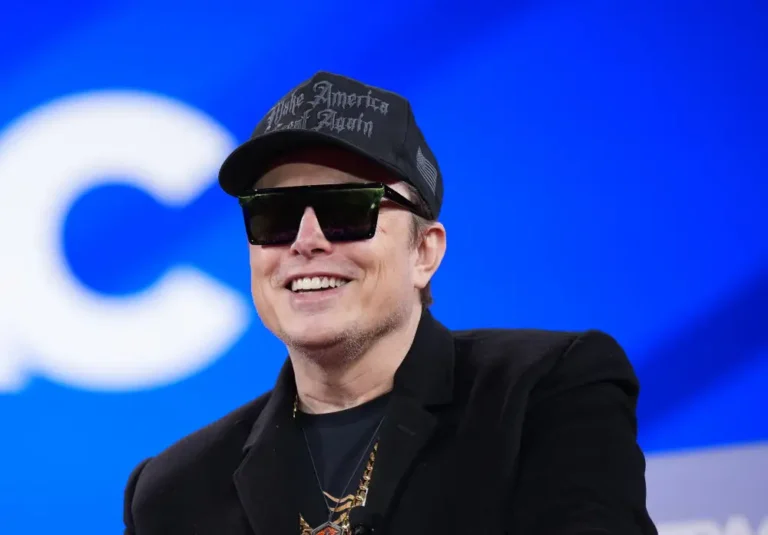Why Sam Altman doesn’t think AI will replace writers
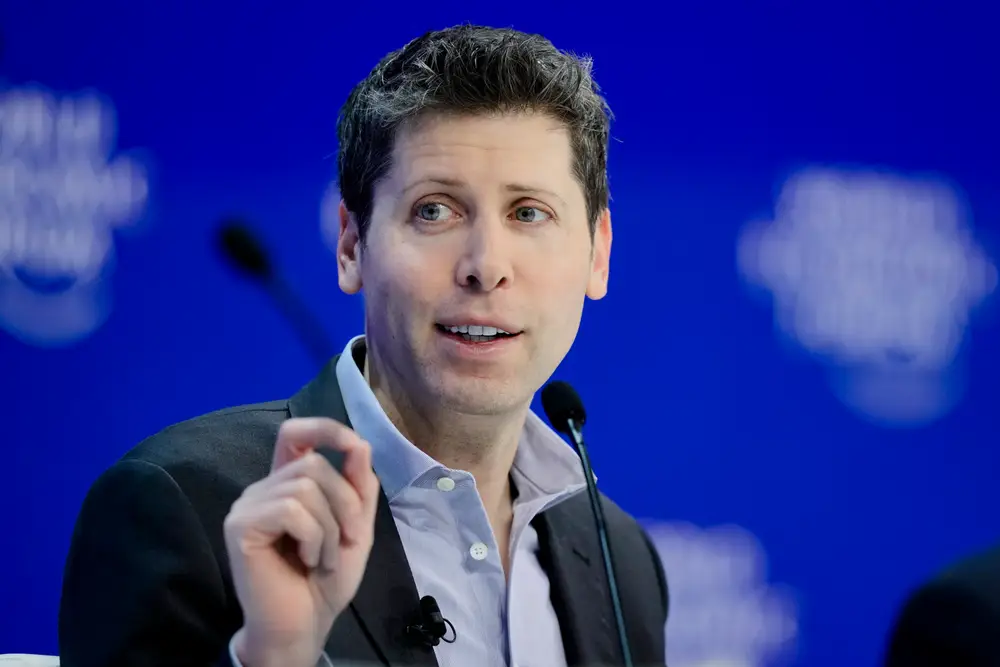
OpenAI CEO Sam Altman does not think writers will be replaced by AI.
While multiple jobs are seemingly at risk of one day being replaced by AI, Sam Altman doesn’t believe writers are one of them.
In an interview with writer and podcaster David Perell, the OpenAI CEO said that he does not see any evidence that AI is “killing writing.”
“There’s like a lot of bad AI writing plastered over the internet, and there’s like a lot of like bad student assignments that have probably been written by AI,” he said. “But I don’t think anyone’s serious.”
While AI-generated work has increasingly pervaded school assignments, to many educators’ concerns, it has also started to seep into professional writing jobs — with some workers voicing concern that their roles could be replaced. One freelance writer previously told B-17 that they lost a job after their client began using AI to replace his services.
Other writers are fully embracing it. One man wrote and illustrated an AI-generated children’s book, though it received backlash from some artists. Another author, Tim Boucher, wrote over 120 books in just two years using chatbots like Claude and ChatGPT to generate images and text.
“My books allow AI models to speak for themselves, almost like the idea of an unreliable narrator in literature,” he previously told B-17.
And some writers are even teaming up with AI firms to further enhance their chat’ writing abilities. Companies like Scale AI and Surge AI are hiring workers with graduate degrees and professional writing experience to write training content for AI models.
But Altman remains confident that human writers will maintain an advantage over AI — original idea generation.
“It’s definitely not like gonna replace coming up with the ideas anytime soon,” he said. “It’s an incredible tool for writers, but definitely not a writer.”
While Altman thinks AI chatbots can work similarly to a “collaborator” that can undertake subtasks, he said that it would take “full super-intelligence,” or AI that reaches or exceeds human intelligence, before AI could threaten to replace human writing.
“And we have much bigger issues to worry about at that point,” he said.
Altman said ChatGPT’s storytelling abilities are not very good yet, though he does “expect it to get better.” OpenAI recently unveiled its o1 AI model, which is designed to “think” and reason before responding, according to the company. Essentially, it is trained to think a little more like humans. However, the new AI model’s personal writing abilities didn’t score as highly as OpenAI’s other recent LLM, GPT-4o, in a survey of people’s preferences.
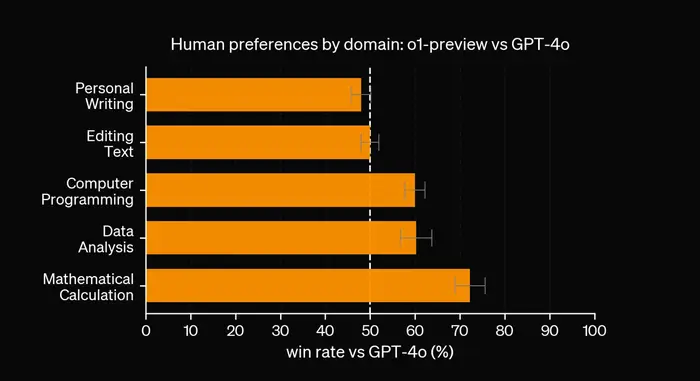
OpenAI’s data on human preferences of various tasks performed by GPT-o1 and GPT-4o.
However, even if a human-surpassing AGI, or artificial general intelligence, does materialize, Altman posed a question in this hypothetical future — will the most popular novel of 2027 have a human name on it or not? He thinks it does.
“When I finish a great book, the first thing I do is like I want to know about the writer,” Altman said. “I want to know their life story. And I don’t think I’ll ever have that feeling to AI writing.”
The billionaire said that one of the main takeaways from an impactful book is the intrinsically human connection created between the reader and the author, one that he feels AI cannot replicate.
“You feel like you have this important shared human experience,” he said. “And that is some significant percentage of enjoyment of a great book to me, and I bet we keep doing that.”

